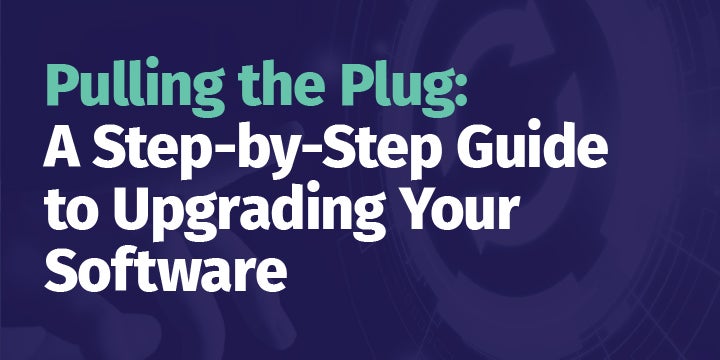Is SEO Dead?

In the age of paid marketing campaigns like pay-per-click (PPC) advertising, it’s no wonder that business owners investing in an online marketing strategy wonder whether paying for search engine optimization (SEO) is worth it. How to best spend your company’s marketing dollars is a tough question that we’ve discussed elsewhere. After all, high organic rankings established through optimized content take time whereas PPC can put you at the top of the search engine results page (SERP) practically instantaneously. Therefore, why not just forget about SEO and just pay your way to the top?
So, with the rise in paid advertising and its position on the search engine results page, it leaves us wondering, is SEO dead? The answer is no. SEO is not dead, it’s just evolving. Like most things in life, the only constant in the technology industry is change. Google algorithms are in constant flux. Since 2010, the Panda update has focused on content over keyword saturation. The Penguin update valued strong, relevant link building over spam, and the Hummingbird update considered individual preference and history when generating search results. SEO has come a long way, and it is alive and well.
In order to understand where SEO is now, we must understand what is no longer relevant, how changes in SEO have influenced content creation, and why SEO is still an important part of digital marketing.
SEO Of The Past – 5 Dead SEO Tactics
As SEO evolves, a lot of factors that used to be important are no longer relevant in determining your website’s Google ranking.
Saturating Websites With Links In the past, link building was an essential part of SEO. As a result, web designers integrated as many links as possible, relevant or not, to boost a site’s Google rankings. Over time, Google caught on. Now, SEO values quality, authentic links that benefit the user experience over quantity.
Saturating Content With Keywords Prior to the Panda update, search rankings relied on the use of relevant keywords. As a result, writers over-used certain words or phrases that would boost rankings. Keyword stuffing is no longer relevant. Search engines focus on value, readability, and relevance. Thankfully, it is no longer beneficial to sacrifice good content for keywords.
Quantity Over Quality In the past, it was important to generate a separate page for every keyword variation. Fortunately, search engines are smarter now than they once were. They recognize synonymous or similar keywords and automatically include search results that match a topic rather than an exact word or phrase. Now, it’s important to create a website that deeply and accurately addresses a topic without the unnecessary drivel.
Indiscriminate Authorship And Irrelevant Content When quantity over quality seemed important, websites would encourage and allow unknown bloggers to publish on their sites to create exposure. Today, however, this is no longer practical. Fresh content that is irrelevant will lower your rankings in the SERP.
Writing To An Audience Of Robots In the past, SEO looked for keywords. It valued content that repeated a keyword, and web developers caught onto that trend which resulted in awkward, irrelevant writing. Today, Google is a lot smarter, and writers need to write to their targeted audience rather than a perceived robot. To improve user experience, web designers need to consider the following:
How a website looks – this includes layout, graphics, and font size
Readability across devices – users need to access information on computers, tablets, and smartphones
Interactive content – users look for articles, images, and videos for information
Current SEO Tactics - 5 Strategies For Changing Search Engines
Though parts of SEO are dead, there are important aspects that we must consider in order to increase organic rankings. Fortunately, most of these strategies favor rich, well-designed content that’s created for changing search engines and users’ needs. As SEO algorithms evolve, they’re asking for a more dynamic approach to web design. The following techniques are important when developing relevant content that will compete on the SERP
1. Don’t worry about being number one. Instead, focus on educational content.
Internet users know that Google has a constantly changing SERP that lists paid advertisements first. Though users will click on relevant links when shopping, if you only cater to that audience, you will miss out on the abundant users that have caught onto the commerce-saturated approach to paid advertising. Today, most Internet users have caught on to the fact that relevant, organic content appears below paid content on the search page, and they will scroll down to find it.
These users looking for information use Google as a discovery engine. They’re looking for wellresearched, informative content, whether they’re buying a product or answering a question. In fact, 70-80% of Internet searchers ignore paid advertisements and scroll down to organic listings which makes optimizing content a relevant part of any strong digital marketing campaign.
2. Branding and high-quality content go hand-in-hand.
Now that we’ve discussed the importance of SEO, it’s important to think about how to generate content. Not only do Google’s algorithms favor rich, quality content, but as SEO evolves, it favors a brand that’s attached to that content. Therefore, as designers develop content, it’s important for them to attach that content to a specific brand or an identity that becomes familiar to users as they search for products, services, and information. Take the time and make the investment in building a stronger brand to continue to compete with the evolving digital marketplace. It will pay off.
3. Diversify content for users’ needs, interests, and history.
Internet users are used to personalized results which is why two people searching for the same topic will have different results. Think about the diverse interests of your targeted demographic, and work towards shaping content to fit a variety of needs. Some users may favor written content, while others prefer videos. Some may take the time to read a long article, while others search for quick guides. It’s important to cover all your bases by including dynamic content that is relevant and interesting to a wide audience. Some may be searching for a product or service while others are conducting research to look for information before buying. Including summarized as well as elaborated information will help you cater to a variety of different users allowing you to rank higher.
When considering your diverse audience, you must also understand that different people look for different types of content. When creating content, have a goal in mind that taps into your users’ different interests, questions, and preferences. Think about whether you’re creating content for social media, search terms, or evergreen. Vary headlines and content accordingly to reach a wider audience.
4. Revise your old content to give it new life.
You likely have content in your arsenal that you believe is important, but it may be outdated or generated with old SEO practices in mind. No need to reinvent the wheel. It’s time to revitalize this content to respond to changing search engines. By using data collected through your Google Search Console, you can evaluate data and reinvigorate it to improve its rankings. Because SEO values rich, well-written content, adding and developing relevant topics will help revive older content.
5. Analyze, revise, and repeat with help from the experts at FieldRoutes.
To keep up with something like SEO that’s constantly evolving, it’s important to consistently analyze data and make necessary changes to keep your site relevant. This process can be overwhelming for busy business owners. It involves staying informed about Google’s changing algorithms, generating new content, running analytics on created content, and revising content as needed. To help lessen the burden, consider utilizing a marketing team to work with existing content and create new content that’s optimized for the changes in search engine algorithms.
FieldRoutes offers services to improve your search engine exposure and gain new traffic to your website. SEO audits are check-ups for your website to determine what’s working and what needs improvement. Then, a team of experts will use this information to help improve your site’s rank in the search engine. Our SEO audit includes, but is not limited to, an analysis of the following:
We analyze keywords and topics to determine what words and phrases should be naturally woven into content to improve rankings.
We run analytics to compare whether your traffic is increasing or decreasing as you implement digital marketing strategies. Furthermore, our analytics will determine where your site generates the most traffic by evaluating organic results, social media, paid advertisements, and referrals. From there, we will adjust as needed.
We analyze the quality of website content to ensure that it is readable, relevant, and up-to-date. We will ensure that keywords and site links are used appropriately to enhance content.
Using SEO best practices, we consider how headings and content will prove valuable to a variety of different audiences. Furthermore, we ensure that content is accessible across a variety of different devices so that users with laptops, tablets, and smartphones can easily engage with your website.
FieldRoutes will use SEO best practices to help unlock the full potential of your company’s website. If you’re looking to expand your brand beyond Google’s organic rankings, we can help you with a holistic marketing campaign that also develops PPC advertising, email marketing, and social media marketing. The FieldRoutes™ Compass marketing portal will help evaluate data from all your marketing efforts in one easy portal so that you can make sure your investments are paying off. When done right, SEO is an investment that drives down your customer acquisition costs; it is often your least costly marketing channel for growing your business.
SEO Is Evolving
In the end, it’s important to remember that SEO is evolving, and like anything that is part of an evolutionary process, you must evolve with it to compete, and it takes time to see change. Though it’s time to bury some SEO strategies, contemporary methods for evaluating SEO keep us constantly progressing, working, and developing content. At FieldRoutes, our aim is to help you evolve with changing algorithms to keep your site relevant and ahead of the curve. Reach out to us today to talk more about how we can help you achieve your company’s growth goals.
Your Partner In Growth
FieldRoutes employs an expert team of web developers, content creators, and marketing professionals with one job and one job only: create a framework that helps our clients succeed in an increasingly digital world. We can help you not only get in front of your perfect potential customer but also reel them into your sales funnel and give them everything they need to make a purchase.
Whether you’re looking to create a business you can sell or are in it for the long haul, we have the specialized websites and marketing tools you need to keep growing. Contact us today for all the details.
Call for a Demo at 207.492.4235
Join the growing number of thriving businesses, large and small, using FieldRoutes to acquire new customers, improve automation, and crush the competition.
Works Cited
Gerweck, Katie. (2019, October 22). “Is SEO Worth it? 11 Common Concerns on the Value of SEO”. Pure Visibility. Retrieved June 2, 2020, from https://purevisibility.com/is-seo-worth-it/
Knauff, Jeremy. (2017, October 30). “13 SEO Tactics That Should Terrify You”. Search Engine Journal. Retrieved June 2, 2020, from https://searchengineland.com/13-outdated-seo-tacticsterrified-285353
Shelley, Ryan. (2019, October 16). “80 SEO and SEM Statistics That Prove the Power of Search [2020 Update]”. SMA Marketing. Retrieved June 2, 2020 from https://www. smamarketing.net/ blog/80-seo-statistics





